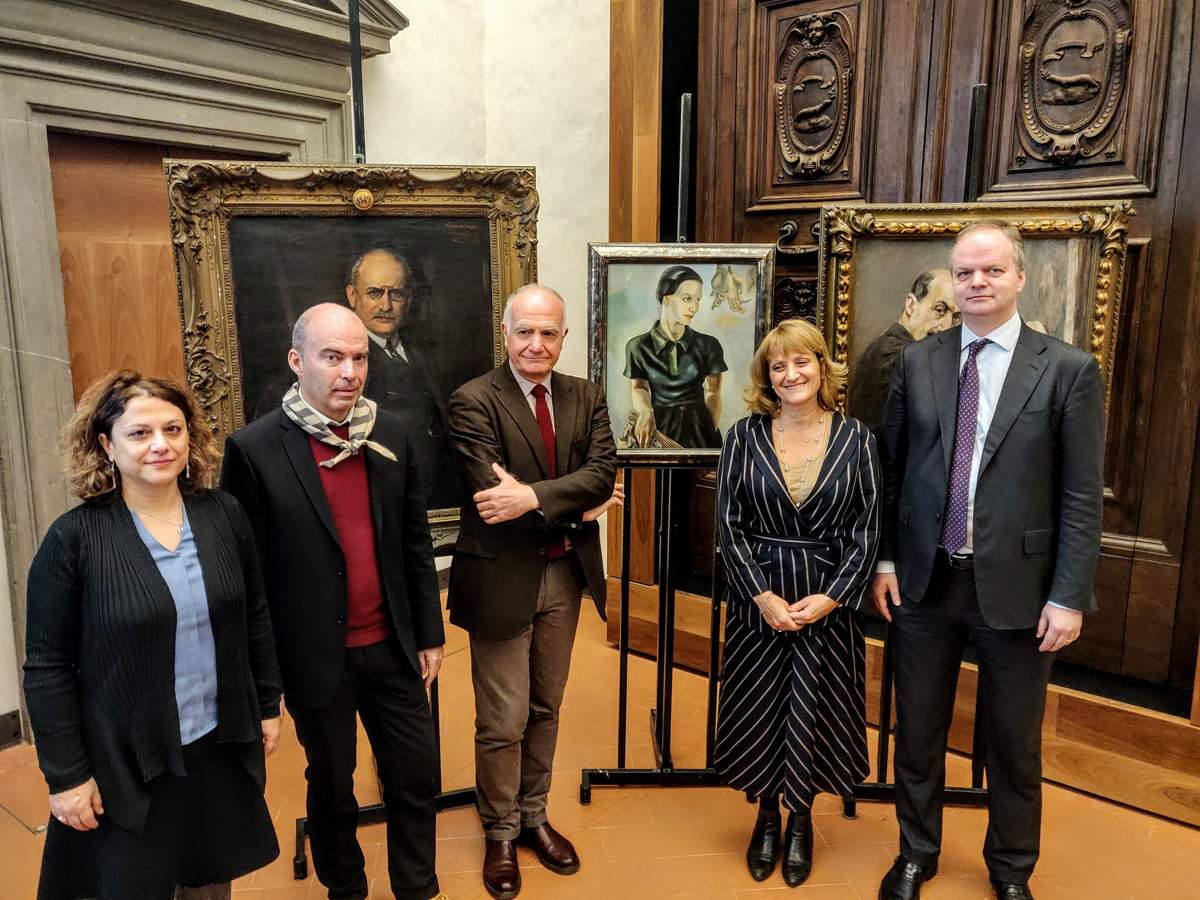The meeting Memorial Day 2019 - The Drowned and Saved in the Collections of the Galleries was held yesterday at theVasari Auditorium of the Uffizi in Florence. The event was attended by students from Tuscan institutes, art historians from the Uffizi such as Claudio Di Benedetto and Simonella Condemi and researcher from the Tuscan Institute of Resistance Valeria Galimi, the president of the Italian Jewish Communities (Ucei) Noemi Di Segni and that of Aned (National Association of Ex Deportees) Alessio Ducci. The meeting was opened by the director of the Uffizi, Eike D. Schmidt, who appealed for the return to Jewish families of artworks stolen by the Nazis during World War II. Schmidt recalled that in World War II there were “so many works of art stolen by the Nazis, not only from museums, but also from families and synagogues: we are talking about hundreds of thousands of pieces, often looted while destined the rightful owners to die in concentration camps. This is an important and painful issue, kept silent for too long: today we also want to remove the veil from this great drama of the Shoah.”
The director then made an appeal to the governments of the various countries involved, which “should set up commissions that are actively engaged, as among other things is already happening in Italy, thanks to the Nucleo di Tutela dei Carabinieri: this is the model that we hope other countries will choose to follow.”
Di Segni emphasized that having despoiled Jewish families of their art treasures “was part of a very precise extermination design, which was also explicit on the dimension of possession, because of the value that the collections might have, and also as part of a systematic destruction of identity, to the extent that art is a component of an inner wealth of the people who guarded or made it.” The Ucei president then wanted to thank the Uffizi for initiating the battle to return Jan van Huysum’s Vase of Flowers, stolen by the Nazis in 1944, to the Pitti Palace: “it is an affair that we have followed and continue to follow with great attention,” she said.
Ducci, of Aned, finally brought his testimony as the son of a deportee: “My father was in one of those camps. He survived: he was weighed, at the time of liberation he was just 27 pounds. He was 18 years old. Only bones, skin, nothing else was left on him. But he made it: starting from this element of strength, the emergence against all odds from the immense tragedy of the Holocaust, I want to invite young people to draw a message of hope.”
During the event, a number of self-portraits (belonging to the Uffizi collection) of artists deported by the Nazis during the war were exhibited in the Auditorium: including those of Italo Josz, Max Liebermann, Mariette Lydis, Heinrich Rauchinger, LLewelyn Lloyd and Adriana Pincherle. “This type of work will symbolically have an ad hoc exhibition space,” Director Schmidt announced, “when the new rooms devoted to self-portraits are opened on the second floor of the Gallery.”
Pictured, from left: Valeria Galimi, Alessio Ducci, Claudio Di Benedetto, Noemi Di Segni, Eike D. Schmidt
 |
| Uffizi director: 'works stolen by the Nazis must be returned to Jewish families' |
Warning: the translation into English of the original Italian article was created using automatic tools. We undertake to review all articles, but we do not guarantee the total absence of inaccuracies in the translation due to the program. You can find the original by clicking on the ITA button. If you find any mistake,please contact us.